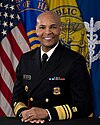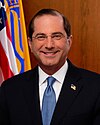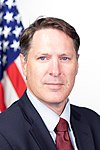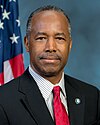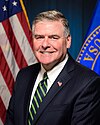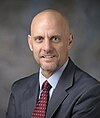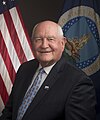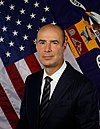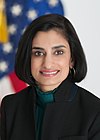
I have written several articles on the coronavirus and on masks.
A series of links have been provided at the bottom of this article for your convenience.
This article will, however address a different aspect of the virus.
The White House Coronavirus Task Force is a United States Department of State task force that “coordinates and oversees the administration’s efforts to monitor, prevent, contain, and mitigate the spread” of coronavirus disease 2019 (COVID-19). Also referred to as the President’s Coronavirus Task Force, it was established on January 29, 2020, with Secretary of Health and Human Services Alex Azar as chair. On February 26, 2020, U.S. vice president Mike Pence was named to chair the task force, and Deborah Birx was named the response coordinator.
The first known case in the United States of COVID-19 was confirmed in the state of Washington on January 20, 2020, in a 35-year-old man who had returned from Wuhan, China on January 15. As I stated above, the White House Coronavirus Task Force was established on January 29, with Secretary of Health and Human Services Alex Azar as its chair. On January 30, the WHO declared a Public Health Emergency of International Concern and on January 31, the Trump administration declared a public health emergency, and placed travel restrictions on entry for travelers from China. On February 26, U.S. Vice President Mike Pence replaced Azar as chair.
Members
The task force reviews all coronavirus-related actions by federal agencies, and has overruled the Centers for Disease Control and Prevention (CDC) several times. The New York Times reported that the CDC’s leadership has been criticized during the pandemic, for mismanaging the testing kit rollout and changing its guidance on transmission of the virus; the White House says it is following the science in overruling the CDC. In March 2020, the task force deployed a team to cope with test kit shortages across the country, overseen by Brett Giroir, recognizing that the shortages were a serious threat to the country.
Operation Warp Speed was initiated in early April to facilitate and accelerate the development, manufacturing, and distribution of COVID-19 vaccines, therapeutics, and diagnostics after a round-table meeting with Trump, Pence and industry executives at the White House on March 2.
On September 29 the task force overruled the CDC’s recommendation regarding when passenger cruise ships should be allowed to resume sailing. The CDC wanted to extend the existing “no-sail” directive until February 2021, but the task force agreed with the cruise ship industry’s recommendation that the prohibition end on October 31, 2020. Two unnamed federal health officials told The New York Times that on October 9 the task force rejected a proposed CDC order requiring passengers and employees to wear masks on all forms of public and commercial transportation in the United States, including airplanes, trains, buses, subways, and transit hubs. A federal mask mandate was supported by some airlines and the transportation worker unions; the task force said that such orders should be left up to states and local governments.
On March 10, 2020, The Hill reported that U.S. Senate Republicans who had attended a briefing with President Donald Trump had encouraged him to hold more briefings and to make Anthony Fauci the “face of the federal government’s response” because according to an unnamed senator, “he has credibility”, he “speaks with authority” and he “has respect in the medical community.” The role of Health and Human Services secretary Alex Azar was downsized, according to the Wall Street Journal, with Pence taking a larger role.
The Task Force livestreamed press briefings at whitehouse.gov to communicate updates, guidelines, and policy changes to the public during the 2020 COVID-19 pandemic in the US. On March 16, the White House began holding the task force press briefings daily, but by late April the White House discussed reducing the frequency of these briefings. On April 25, there was no press briefing, and at that time no further press briefings had been scheduled. On May 5, Pence said that the administration was discussing “what the proper time is for the task force to complete its work”; the next day, Trump said that the task force would “continue on indefinitely” but would refocus on returning the nation to normal activity.
As the US entered a new phase of re-opening businesses and getting back to work, Pence named five new members to the task force on May 15, 2020.The task force gave a press briefing on May 15, and on May 22, Birx appeared with press secretary Kayleigh McEnany. For the rest of May and into June, the task force met once or twice weekly, behind closed doors, as the White House switched to an economic message. The task force gave another press briefing on July 8. Fauci said on July 10 that he had not given a briefing to Trump for two months.
Scott William Atlas (born July 5, 1955) is an American neuro-radiologist, professor, commentator, and health care policy advisor. He is a senior fellow at the Hoover Institution. He was selected by President Donald Trump in August 10, 2020 to serve as an advisor on the White House Coronavirus Task Force.
Contrary to the recommendations of most of the scientific community, Atlas has pushed for establishing herd immunity, and a faster reopening of schools and businesses during the COVID-19 pandemic. He pushed fringe theories and junk science that face masks and social distancing were not effective in slowing the spread of the coronavirus. He advocated to states to not engage in universal testing. His views and influence on policies have caused controversy on the task force. Atlas has threatened to sue medical professionals who have criticized his claims about COVID-19.
Atlas has advocated for physical school reopening and resumption of college sports during the pandemic. The Washington Post reported that Atlas was the leading proponent within the Trump administration for a “herd immunity” approach to the virus, which would kill hundreds of thousands more Americans. In an interview with Fox News‘s Brian Kilmeade in July, Atlas said: “These people getting the infection is not really a problem, and in fact, as we said months ago, when you isolate everyone, including all the healthy people, you’re prolonging the problem because you’re preventing population immunity. Low-risk groups getting the infection is not a problem. In fact, it’s a positive.” Atlas denied later that he advocated for the herd immunity strategy, said “there’s never been a desire to have cases spread through the community,” and said it “has never been the president’s policy.”
Atlas has claimed that children “have virtually zero risk of dying, and a very, very low risk of any serious illness from this disease” and “children almost never transmit the disease” although children can carry, transmit, and be killed by the COVID-19 virus. He has argued that only symptomatic individuals should be tested for the coronavirus, and pushed for the CDC’s August 2020 recommendation that non-symptomatic people not be tested; this position was opposed by many public health experts, as 40% of people infected with the virus are asymptomatic and can transmit the virus. He has expressed skepticism that face masks are effective “scientifically” to halt the spread of the virus, although the broad scientific consensus is that face masks do prevent the spread of the virus.
Atlas quickly became influential within the administration, and Trump has welcomed his recommendations such as faster reopening and less testing, which are in accord with Trump’s own preferences. Atlas was the only doctor to share the stage at Trump’s pandemic briefings in the week after his appointment was announced, and he has also prepared Trump’s briefing materials. Trump has publicly disagreed with or reduced the roles of his other COVID-19 medical advisors, Deborah Birx and Anthony Fauci. Atlas has denied any intention of replacing Fauci or other task force members. Atlas is said to have alienated Birx and Robert R. Redfield of the CDC with his controversial ideas. Redfield was heard privately commenting on Atlas that “everything he says is false”. When Fauci was asked whether Atlas was providing misleading information to Trump, Fauci replied, without naming Atlas, that “sometimes there are things that are said that are really taken either out of context or actually incorrect”.
In an interview with The Washington Post a month later, Fauci went further in describing Atlas, “I have real problems with that guy. He’s a smart guy who’s talking about things that I believe he doesn’t have any real insight or knowledge or experience in. He keeps talking about things that when you dissect it out and parse it out, it doesn’t make any sense.”
During stimulus negotiations in fall 2020, Atlas opposed funds for widespread COVID-19 testing; in an email to an economist, Atlas wrote that the push for testing was “a fundamental error of the public health people perpetrated on the world.”
Atlas’s influence on policy has alarmed many doctors and health experts. In September 2020, 78 of Atlas’s former colleagues at the Stanford Medical School signed an open letter criticizing Atlas, writing that he had made “falsehoods and misrepresentations of science” that “run counter to established science” and “undermine public health authorities and the credible science that guides effective public health policy.” Atlas’s lawyer Marc Kasowitz threatened to sue the researchers.
Dissension in the Task Force:
Dr. Deborah Birx is nowhere to be found at the White House these days.
Though she retains the title of coordinator of the White House coronavirus response, Birx has not attended any of President Trump‘s press briefings on the pandemic since he started them anew in late July, nor was she at a recent event to tout the administration’s advances in testing.
Instead, Birx has been on the road, visiting 36 states and 27 different colleges and universities since the end of June to meet with state, local and university leaders to advise on best practices for containing the coronavirus and to gather information on what’s been working in each place.
Olivia Troye, a former coronavirus task force adviser who worked with Birx and is now a Trump critic, said White House officials grew irritated by Birx’s detailed and data-heavy presentations in the early summer that showed emerging hot spots and difficulties getting the virus under control. Some officials rolled their eyes as Birx delivered a message that clashed with the administration’s preferred narrative that things were improving, Troye said.
The frustration preceded a push to get Birx out on the road to meet with state and local leaders, multiple officials familiar with the discussions said. She last appeared publicly alongside Trump in an early August Oval Office meeting with Arizona Gov. Doug Ducey (R).
“It’s convenient because they don’t want her at the White House and don’t want her at the podium,” Troye said. “But in many ways it probably ended up being better for her.”
Administration officials and those who have met with Birx recently say she remains a vital resource and argue that she may be more comfortable being away from Washington, D.C., where she had to navigate the politics of the White House. She often drew criticism for praising Trump publicly while attempting privately to impress upon others the seriousness of the situation.
But her absence is a sign of how Trump has spurned the same doctors who were the face of the coronavirus response in the early months of the pandemic in favor of advisers who align with his views.
She has joined the likes of Anthony Fauci, Centers for Disease Control and Prevention Director Robert Redfield, and Surgeon General Jerome Adams as fixtures of White House briefings from February to April who have since been relegated to the background, while Scott Atlas, who is not an epidemiologist and has pushed the controversial herd immunity theory, has gained the president’s ear.
Unlike Fauci, Birx no longer appears on Sunday morning shows or cable news. Those appearances proved problematic at times for Birx, as she would often be pressed to contradict or call out the president’s latest misleading or questionable comments about the pandemic.
“She navigates the political atmosphere much better than a lot of the doctors at times, but it’s exhausting, and I’ve certainly seen it firsthand, and I’ve certainly seen it weigh on her,” said Troye, who left the White House in July.
The White House coronavirus task force provides tailored recommendations to governors and health commissioners, and Birx’s travel has been a key component of understanding their problems and offering guidance, an administration official said.
“Dr. Birx continues to lead the Task Force and travel the country working hand-in-hand with Governors and local health officials to ensure we are defeating this virus at the local level with federal support,” White House deputy press secretary Sarah Matthews said in a statement.
Birx did not respond to a request for comment for this story.
Vice President Pence tapped Birx in late February to coordinate the White House coronavirus response when there were just 60 known COVID-19 cases in the United States. Birx was appointed by former President Obama in 2014 as an ambassador-at-large to lead the country’s global efforts to combat HIV/AIDS.
She became a fixture at press briefings early in the coronavirus pandemic. Her scarves spawned parody Instagram accounts, and she and Fauci emerged as authoritative voices at the White House. But as Trump and others in the building pushed for states to lift restrictions and insisted the country was rounding the turn on the pandemic, Birx appeared less frequently.
Since then, cases have spiked around the United States. The country recorded more than 60,000 new infections on Thursday. Officials in Wisconsin, Montana and other states have raised concerns that their hospital systems could soon be overwhelmed.
Those who know Birx or who have met with her in recent weeks have universally praised her professionalism and helpfulness. They say she is simply looking for ways to be most effective in an administration where the president has repeatedly contradicted and ridiculed his own top health officials.
“It is really, I would say, close to impossible to do anything reasonable with this White House. And she tried initially inside, and now what I think she’s trying is she’s trying outside,” said Carlos del Rio, an infectious disease expert at Emory University who has worked with Birx through her role in the State Department.
“I think she’s trying to figure out how can she do the best in, quite frankly, a very complicated environment,” he added.
Birx has recently visited states such as Alabama, Connecticut, Maine, Massachusetts, Mississippi, New Hampshire, New Jersey, New York, Pennsylvania, Rhode Island, South Carolina and Texas. Birx told one university president she met with that she’d traveled more than 16,000 miles over the last few months.
Birx typically meets with college and university leadership during those stops and occasionally with governors and local officials. Each visit tends to include press briefings with local media. She discusses the importance of masks and physical distancing, and she has urged students to be mindful of the risks when they return home for Thanksgiving and interact with family.
“It was a very buttoned-up visit, I would say,” said Max Reiss, communications director for Connecticut Gov. Ned Lamont (D). “It had a very clear public health focus the entire visit. She met with the governor one-on-one. She met with the heads of the [University of Connecticut] system one-on-one.”
Birx last week visited Stony Brook University in New York to meet with school leaders, researchers and students. She also met with leaders of the university’s hospital, which was inundated in the early months of the pandemic.
Stony Brook President Maurie McInnis said Birx was interested in how the school had maintained such a low case load during the fall semester and had gotten widespread compliance from students to wear masks.
“We were all really just both enormously appreciative and learned so much from her visit, and I think it sharpened our thinking about winter and the important messaging that we are going to need to follow,” McInnis said.
Even hundreds of miles away, though, it’s impossible for Birx to completely separate herself from the latest White House controversies.
During a recent trip to New Jersey, Birx danced around a question about the president attending a fundraiser the same day he tested positive for COVID-19. In Connecticut, local media asked her about Trump’s claim that Americans shouldn’t be afraid of the virus. And during her stop at Stony Brook, reporters asked what Birx made of Trump’s treatment when he had the virus, McInnis said.
“At the press briefing, she got several questions from reporters [about Trump], and she very deftly did not answer them,” McInnis said. “She was very focused on her message, which is the public health message, what we all need to be doing to be safe and keep coronavirus at low levels.”
White House coronavirus response coordinator Deborah Birx recently confronted Vice President Pence about the increasing influence of Scott Atlas over the administration’s handling of the pandemic, a person familiar with the exchange confirmed to The Hill.
Birx raised concerns about the information Atlas was giving President Trump and suggested he be removed from the White House coronavirus task force. Atlas is not an infectious diseases expert but has emerged as one of Trump’s most influential advisers on the pandemic.
The exchange was first reported by The Washington Post, which said Pence asked Birx and Atlas to work out the strife on their own and to present data to their colleagues supporting their viewpoints.
Atlas advocates policies that put him at odds with the mainstream of infectious diseases experts and other health officials on the task force.
Most controversially, he praises the herd immunity strategy outlined in a document called the “Great Barrington Declaration,” which calls for allowing the virus to spread among lower-risk, younger people to build up immunity while having “focused protection” on older, high-risk people.
Many leading experts have denounced that approach as leading to hundreds of thousands of more deaths as the virus circulates freely. Tom Frieden, the former director of the Centers for Disease Control and Prevention, estimated last week that the herd immunity strategy would lead to at least 500,000 more deaths.
Twitter also removed a tweet from Atlas over the weekend that questioned the effectiveness of masks, which are embraced by leading experts as a way to slow the spread of the virus. “Masks work? NO,” Atlas’s tweet began.
As Democrats push to expand testing in talks over a coronavirus response package in Congress, Atlas is also pushing back on the idea, saying testing should be focused on the vulnerable only.
“When you start seeking out and testing asymptomatic people, you are destroying the workforce,” Atlas told The New York Times.
Atlas has established himself as one of the most influential voices in the president’s ear on the pandemic, according to multiple current and former administration officials. Trump has in recent weeks cast doubt on the effectiveness of masks and railed against continued restrictions on economic activity to slow the spread of the virus.
Anthony Fauci, the government’s top infectious diseases expert, and Centers for Disease Control and Prevention (CDC) Director Robert Redfield have both spoken out against Atlas and his ideas publicly or privately.
Redfield was overheard last month lamenting that “everything [Atlas] says is false” during a phone conversation on a flight.
Asked about Atlas’s position and if the White House was open to herd immunity, Fauci did not mention Atlas by name but pushed back in an interview with Yahoo News last week.
“My position is known, Dr. Deborah Birx’s position is known, and Dr. Bob Redfield,” Fauci told Yahoo News, adding: “All three of us very clearly are against that.”
Experts say there is no way to fully protect the vulnerable if the virus is raging unchecked in the broader population.
Birx, a State Department official with an expertise on HIV/AIDS, was tapped to coordinate the White House coronavirus response in late February when there were just a few dozen confirmed cases in the United States. She was a regular fixture at White House briefings on the pandemic and appeared frequently on television to defend the administration’s response to the outbreak.
But White House officials grew irritated when Birx delivered data-heavy presentations in June and early July that undercut their preferred narrative that the situation in U.S. was improving, according to Olivia Troye, a former adviser to the task force who left her role in July.
Birx has been pushed aside at the White House, last appearing alongside Trump in early August. She has spent the last few months on the road, meeting with governors and university officials to advise them on their pandemic response and gather information on best practices.
She has joined Fauci, Redfield and Surgeon General Jerome Adams as public health experts who were prominent figures in the early weeks of the pandemic but who have been sidelined from public view even as the country sees rising case numbers and hospitalizations.
The White House on Saturday October 31st, unleashed on Dr. Anthony Fauci, the country’s leading infectious disease expert, following his comments to the Washington Post that criticized the Trump administration’s response to the pandemic, including Dr. Scott Atlas, who the President has relied on for advice on handling the coronavirus.
“It’s unacceptable and breaking with all norms for Dr. Fauci, a senior member of the President’s Coronavirus Taskforce and someone who has praised President (Donald) Trump’s actions throughout this pandemic, to choose three days before an election to play politics,” White House deputy press secretary Judd Deere said in a statement to CNN on Saturday evening.
Deere took issue with Fauci’s comments where the doctor seemingly praises Democratic nominee Joe Biden’s campaign. Fauci told the Post that the Democratic nominee’s campaign “is taking it seriously from a public health perspective.” While Trump, Fauci said, is “looking at it from a different perspective.” He said that perspective was “the economy and reopening the country,” according to the Post.
“As a member of the Task Force, Dr. Fauci has a duty to express concerns or push for a change in strategy, but he’s not done that, instead choosing to criticize the President in the media and make his political leanings known by praising the President’s opponent — exactly what the American people have come to expect from The Swamp,” Deere said.
Fauci, a leading member of the government’s coronavirus response, said the United States needed to make an “abrupt change” in public health practices and behaviors, according to the Post. He said the country could surpass 100,000 new coronavirus cases a day and predicted rising deaths in the coming weeks.
“Dr. Fauci knows that the risks today are dramatically lower than they were only a few months ago with mortality rates falling over 80%. The Trump Administration, through the work of the Task Force, continues to surge testing, PPE, personnel, and capacity to protect the vulnerable, help schools reopen, and respond to conditions on the ground,” Deere said.
In Friday’s October 30ths, interview with the Post, Fauci also criticized Atlas, a neuroradiologist and Trump’s hand-picked coronavirus adviser, for his lack of expertise.”I have real problems with that guy,” Fauci said. “He’s a smart guy who’s talking about things that I believe he doesn’t have any real insight or knowledge or experience in. He keeps talking about things that when you dissect it out and parse it out, it doesn’t make any sense.
“Atlas responded to Fauci on Twitter, tweeting on Saturday night: “#Insecurity #EmbarrassingHimself #Exposed #CantThrowABall #NoTimeForPolitics.”Atlas on Saturday made dubious claims in a 27-minute interview to RT, the propaganda network that had played a major role in the Kremlin’s efforts to interfere in the 2016 US presidential election and later was forced to formally register with the Justice Department as an agent of the Russian government. “New interview. Lockdowns, facts, frauds … if you can’t handle truth, use a mask to cover your eyes and ears,” Atlas, who has misrepresented the effectiveness of masks and discouraged testing of asymptomatic people, tweeted along with the interview.
On Sunday, Atlas apologized for doing that interview, tweeting, “I recently did an interview with RT and was unaware they are a registered foreign agent. I regret doing the interview and apologize for allowing myself to be taken advantage of. I especially apologize to the national security community who is working hard to defend us.
“Atlas did not have clearance from the White House for the interview — which RT said was done on White House property — and senior aides raised concerns internally after Atlas appeared on the network, a senior White House official told CNN.
Fauci, in his remarks to the Post, gave a grim warning of a Covid-19 surge as the country heads into fall and winter. “We’re in for a whole lot of hurt. It’s not a good situation,” Fauci said. “All the stars are aligned in the wrong place as you go into the fall and winter season, with people congregating at home indoors. You could not possibly be positioned more poorly.
“Deere pushed back on this warning Saturday, saying, “Dr. Fauci may have just admitted that he is afraid the cure will be worse than the disease and that unlike the President he has no confidence in the American people to make the best choice for themselves armed with CDC best practices.”
Fauci’s comments came the same day that the US reported 99,321 new Covid-19 cases — the highest single day number of cases recorded for any country. As of Saturday evening, the country’s death toll from the pandemic has topped 230,000.Meanwhile, 29 states set new records this month for the most new daily cases since the pandemic began, according to data from Johns Hopkins University.
Fauci’s assessment of the country’s handling of the pandemic also comes as Trump has continued to insist on holding huge rallies — including four in Pennsylvania on Saturday alone — which only draws attention to the fact that he is dangerously flouting the safety guidelines of his own experts at the US Centers for Disease Control and Prevention, daring Americans to hold him accountable for it on Election Day.
This isn’t the first time Fauci has disagreed with the Trump administration for their handling of the pandemic. Earlier this month, the President trashed Fauci as a “disaster” and made baseless coronavirus claims in a campaign call.Referring to Fauci and other health officials as “idiots,” Trump declared the country ready to move on from the health disaster, even as medical experts warn the worst may be yet to come.
Baselessly claiming that if Fauci was in charge more than half a million people would be dead in the United States, Trump portrayed the recommendations offered by his own administration to mitigate the spread of the disease as a burdensome annoyance.
“People are tired of Covid. I have the biggest rallies I’ve ever had, and we have Covid,” Trump said, phoning into a call with campaign staff from his namesake hotel in Las Vegas, where he spent two nights amid a western campaign swing. “People are saying whatever. Just leave us alone. They’re tired of it. People are tired of hearing Fauci and all these idiots.”
White House communications director Alyssa Farah said Sunday that the President still has faith in Fauci. In a separate Fox News interview, Farah also said she spoke with Fauci Sunday morning and that at times the administration reminds him that he sits on the White House coronavirus task force and should voice his concerns.
“He’s somebody who’s highly respected but at times we remind him, you sit on this task force. If you have concerns about our response effort, then please by all means raise them, but a lot of us are working around the clock, the President being the number one person to defeat this virus,” she said.
During the Post interview, Fauci noted he needed to be careful with his answers or he might be blocked from doing further appearances. Fauci and others have said they are worried about regions of the country that may not be prepared to deal with another surge of infections because they of limits on intensive care beds and nurses who can treat increasing amounts of patients, according to the Post.
“It’s much more about some of the states like Utah, Nevada, South Dakota, North Dakota, where … they never had a pretty good reserve of intensive care beds and things like that. I hope they’ll be okay, but it’s still a risk that, as you get more surging, they’re going to run out of capacity,” Fauci said.
Dr. Scott Atlas has only been on the White House’s coronavirus task force for two months, but already has President Donald Trump’s ear and is worrying top experts like Dr. Anthony Fauci and CDC Director Robert Redfield.
Atlas was brought onto Trump’s coronavirus task force in August, after appearing on Fox News for several months, where he often echoed the president’s views — including an opposition to lockdowns.
He is a senior fellow at the Hoover Institution, a conservative think tank at Stanford University. Unlike some other experts on the task force, he does not have a specialty in either infectious diseases or public health. Instead, he focuses on healthcare policy and has a background in neuroradiology, which is the reading of X-rays, CT scans, and MRIs.
Nonetheless, Atlas has clearly become a favorite of the president. National Institutes of Health director and task force member Dr. Francis Collins told NPR this week that Trump has not attended task force meetings “for quite some time,” and is only hearing from Atlas and Vice President Mike Pence instead.
Earlier this month The Washington Post also reported that the Trump administration was “sitting” on $9 billion earmarked for COVID-19 testing because Atlas was opposed to expanding the testing regime.
Since joining the White House task force, Atlas has been widely criticized by scientists:
- Fellow task force member Fauci told CNN he was concerned that Atlas was feeding information “really taken either out of context or actually incorrect” to the president.
- CDC Director Robert Redfield was overheard by a reporter criticising Atlas in a phone call, saying “everything he says is false.”
- Former CDC Director William Foege wrote to Redfield saying that the Trump administration had turned the CDC’s reputation “from gold to tarnished brass”. Foege said Atlas joining the task force was what prompted him to speak out.
- More than 100 of Atlas’ former colleagues at Stanford Medical School signed a letter warning that many of his “opinions and statements run counter to established science.”
- Bill Gates suggested Atlas was hired only because he “agrees” with what Gates called the White House’s “crackpot COVID theories.”
In mid-October, Twitter removed a tweet by Atlas, which said: “Masks work? NO,” alongside a link to an article that argued against the success of face coverings in stopping the spread of the coronavirus. Atlas later told Newsweek that he has appealed the platform’s decision.
In response to Redfield and Fauci’s criticism, Atlas told Business Insider in late September: “All of my policy recommendations to the President are directly backed by the current science, and they are in line with what many of the world’s top medical scientists advise … Career government public health officials do not have a monopoly on knowledge.”
Later, in an October interview with Business Insider, Atlas said that accused his critics of being “either politically motivated or are interested in maintaining their own stature in the public eye,” adding that he is working at the White House “because the country’s off the rails,” not for any political reason.
Pro-lockdown, pro-reopening
Since the beginning of the US coronavirus outbreak, Atlas has spoken out against imposing lockdown measures, saying they were costing the lives of people too afraid to seek emergency medical treatment for other issues.
“In the absence of immunization, society needs circulation of the virus, assuming high-risk people can be isolated,” he wrote in an op-ed for The Hill in April. “It is very possible that whole-population isolation prevented natural herd immunity from developing.”
Since May, Atlas has appeared on Fox News regularly to speak on the US coronavirus crisis, and shared opinions often at odds with many public-health experts’ warnings.
For example, Atlas had argued for schools to reopen for in-person classes and for the college football season should be able to start without any issues — ideas that some experts warned against, but which lined up with the president’s own views.
His rise in the White House comes as the Trump administration continues to sideline Fauci, who has contradicted and corrected Trump’s statements about the coronavirus throughout the pandemic.
Fauci has remained one of the most trusted sources for health information, while Trump has received unfavorable ratings for his coronavirus response.
The president blasted Fauci in a campaign call on October 19, calling him “a disaster,” according to CNN. “People are tired of hearing Fauci and all these idiots,” he reportedly said.
Conclusion:
I always questioned the choice President Trump made with Dr. Fauci and eventually Dr. Birx, after I found out he affiliations with Dr. Fauci. It seemed like Fauci took a great deal of delight in contradicting President Trump. I also know that thanks to a biased media, most people did not trust him on anything involving medical matters. So by choosing someone who seemed to be his own person was a good thing. It showed that he was not trying to brush the matter under the rug so to speak. However it seemed like Dr. Fauci had ulterior motives. Especially when it involved therapeutics like hydroxychloroquine. It also seemed like when Fauci did a press conference, he stock market took a major hit. It almost appeared that he was in league with the left. As time progressed it became apparent that Dr. Fauci and Dr. Birx became marginalized. When President Trump appointed Dr Scott Atlas as an advisor to the coronavirus the separation was complete.
Resources:
en.wikipedia.org, “White House Coronavirus task force,” By wikipedia editors; en.wikipedia, “Scott Atlas,” By wikipedia editors; thehill.com, “Whatever happened to Deborah Birx?” By Brett Samuels; thehill.com, “Birx confronted Pence about Atlas,” By Brett Samuels and Peter Sullivan; cnn.com, “White House rips Fauci after criticism of Atlas and Trump’s pandemic response,” By Kelly Mena; businessinsider.com, “The rise of White House COVID-19 adviser Dr. Scott Atlas, a lockdown skeptic who has Trump’s ear and is worrying experts like Fauci,” By Ashley Collman;
Addendum:
Dr. Scott Atlas Background
- Before he joined the task force, Atlas was a frequent guest on Fox News, where he pushed to reopen the country and espoused views that more closely align with Trump’s opinions during the health crisis.
- An academic, Atlas is the Robert Wesson Senior Fellow at Stanford University’s Hoover Institution and a neuroradiologist and health-care policy expert.
- Atlas graduated from the University of Illinois with a BS in biology and later went on to receive an MD degree from the University of Chicago School of Medicine.
- Between 1998 and 2012, Atlas was employed at as a professor and Chief of Neuroradiology at Stanford University Medical Center.
- Rudy Giuliani and Mitt Romney secured Atlas as a top advisor for health care on their previous presidential campaigns.
- Since his addition to the task force, Atlas has become the medical expert who spends the most time with the president, and his profile has been elevated in recent weeks by his appearing in the White House briefing room when Trump speaks with reporters.
- Atlas has denied advocating the benefits of herd immunity after telling Fox News in July, “These people getting the infection is not really a problem, and in fact, as we said months ago, when you isolate everyone, including all the healthy people, you’re prolonging the problem because you’re preventing population immunity. Low-risk groups getting the infection is not a problem. In fact, it’s a positive.”
- In early September, a collective of 98 immunologists, epidemiologists and infectious diseases physicians signed a letter calling attention to “the falsehoods and misrepresentations of science recently fostered by Dr. Scott Atlas.”
covid links
https://common-sense-in-america.com/2020/06/08/mask-or-no-mask-for-covid-19/
https://common-sense-in-america.com/2020/10/14/why-is-the-coronavirus-so-confusing/
https://common-sense-in-america.com/2020/10/14/the-corona-virus-exposed/
https://common-sense-in-america.com/2020/10/09/masks-how-they-work/
https://common-sense-in-america.com/2020/10/08/the-covid-19-vaccine-safe-or-unsafe/
https://common-sense-in-america.com/2020/10/01/is-dr-fauci-a-devil-or-an-angel/
https://common-sense-in-america.com/2020/09/30/fauci-and-hiv-and-now-coronavirus-sounds-like-dejavu/
https://common-sense-in-america.com/2020/09/16/covid-19-manufactured-or-altered-that-is-the-question/
https://common-sense-in-america.com/2020/09/10/president-trump-acted-appropriately-and-in-a-timely-manner-with-regards-to-covid-19-part-1-of-2/
https://common-sense-in-america.com/2020/09/10/president-trump-acted-appropriately-and-in-a-timely-manner-with-regards-to-covid-19-part-2-of-2/
https://common-sense-in-america.com/2020/08/11/no-hazard-pay-for-covid-19-front-line-medical-professionals-while-hospitals-get-rescue-money/
https://common-sense-in-america.com/2020/07/18/covid-19-just-the-facts-please/
https://common-sense-in-america.com/2020/07/13/releasing-prisoners-early-for-covid-considerations-sets-a-bad-precedent/
https://common-sense-in-america.com/2020/06/16/hydroxychloroquine-is-it-the-medication-of-the-devil/
https://common-sense-in-america.com/2020/06/10/how-covid-19-is-spread-who-needs-who/
https://common-sense-in-america.com/2020/11/01/what-is-the-coronavirus-lockdown-doing-to-the-u-s/
https://common-sense-in-america.com/2020/11/05/did-the-appointment-of-dr-atlas-to-the-coronavirus-task-force-spell-the-end-of-the-task-force/




